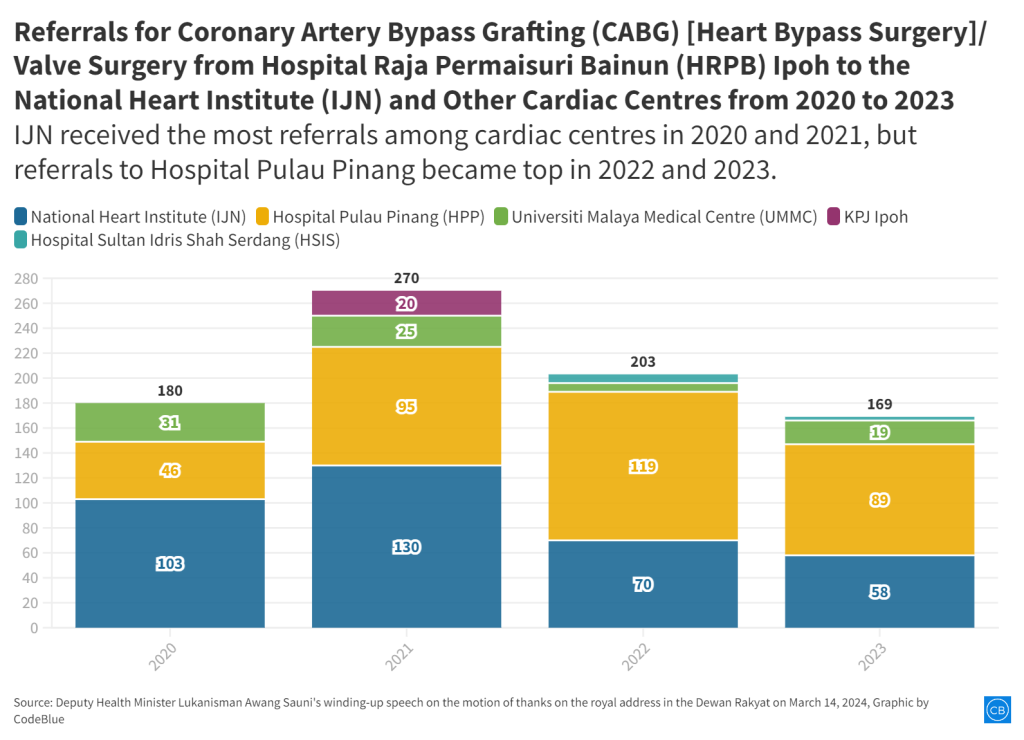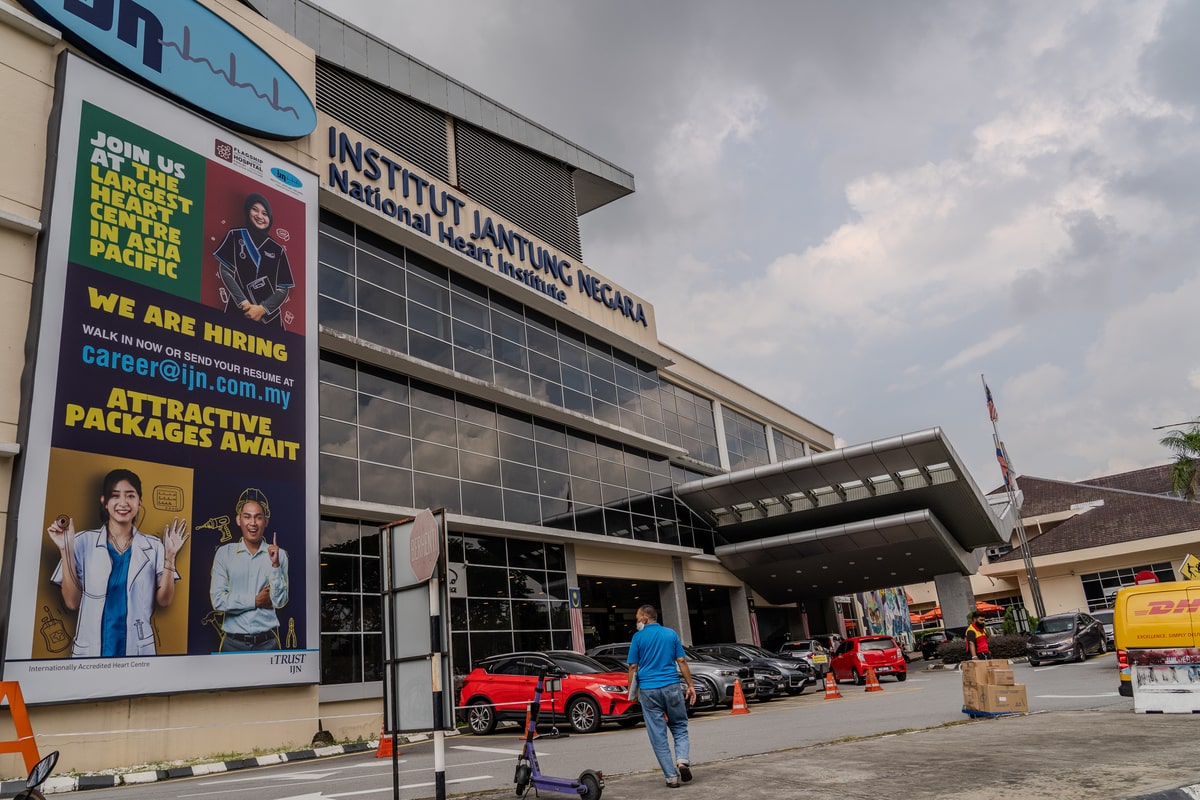KUALA LUMPUR, March 22 — Referrals for heart bypass surgery from Raja Permaisuri Bainun Hospital (HRPB) in Ipoh, Perak, to the National Heart Institute (IJN) declined in the past two years.
From 2020 to 2021, IJN received the most referrals from the Ipoh general hospital under the Ministry of Health (MOH) for coronary artery bypass grafting (CABG) or valve surgery compared to other cardiac centres.
However, in 2022 and 2023, most CABG or valve surgery referrals from HRPB went to Pulau Pinang Hospital (HPP), an MOH cardiac centre that also serves as Penang’s general hospital, exceeding referrals to IJN.
Total referrals for heart bypass or valve surgeries from HRPB to IJN and other cardiac centres – including HPP, private hospital KPJ Ipoh, as well as Selangor-based hospitals Universiti Malaya Medical Centre (UMMC) and Sultan Idris Shah Serdang Hospital (HSIS) under MOH – rose from 180 in 2020 to 270 in 2021, before declining to 203 in 2022 and 169 in 2023.
Deputy Health Minister Lukanisman Awang Sauni, who provided the data during his winding-up speech on the motion of thanks on the royal address in Parliament last week, did not explain why HRPB’s referrals for the heart operations to IJN were exceeded by referrals to HPP in the past two years.
The deputy health minister also announced the MOH’s plans to establish a task force to conduct a study on the discharge of pensioners and civil servants from IJN that would report to Cabinet.
Previously, a letter by a pensioner to CodeBlue published last month – who had complained about his recent discharge to an MOH cardiac centre after 25 years of care at IJN – went viral and triggered political backlash.
Lukanisman told Ipoh Timor MP Howard Lee in the Dewan Rakyat last March 14 that the MOH’s plans to set up a cardiothoracic centre at HRPB was for the future.
“However, implementation cannot be immediate because cardiothoracic services not only require cardiothoracic surgeons, but the MOH also needs to provide cardiothoracic anaesthesiologists, as well as other skilled support staff like nurses and perfusionists.
“Besides that, there must also be equipment and other infrastructure like an intensive care unit (ICU) and the like.”

In his debate on the motion of thanks on the royal address last month, Lee asked for a government cardiothoracic centre in the Perak state capital, noting that there was still no progress after a site visit by the MOH and the Economic Planning Unit (EPU) at the fifth floor of HRPB for such a project.
“It is crucial to understand the reasons behind this delay, especially its impact on patients and their families. Is the delay caused by a lack of funding? Or is our health care system facing a critical shortage of qualified cardiothoracic surgeons? If the latter is the primary concern, then addressing the perceived barriers hindering the qualification and recognition of surgeons needs immediate attention,” Lee said.
The DAP lawmaker criticised the Malaysian Medical Council’s (MMC) rejection of specialist registration applications by parallel pathway graduates in cardiothoracic surgery.
“At a time when we confront a critical shortage of surgeons, any impediment hindering the development of our nation’s health care capabilities is deeply concerning,” Lee said.
CodeBlue reported that the MOH approved last March 15 the gazettement of graduates from four parallel pathway programmes in cardiothoracic surgery (RCSEd), family medicine (RACGP and ICGP), and plastic surgery (RCPSG), but their path to National Specialist Register (NSR) registration remains uncertain.








